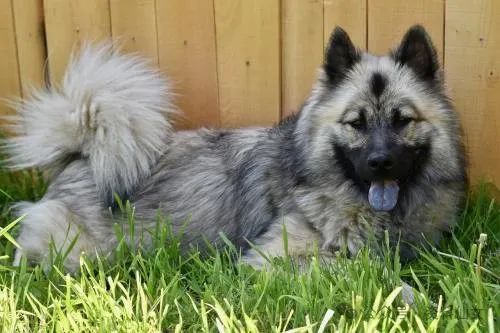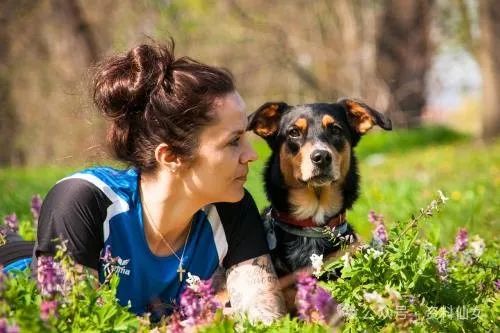


m, which I place in this test-tube to the right. The other rabbit has not been inoculated. I draw off some of its serum and place that tube here on the left--we will call that our 'control tube.' It will check the results of our tests.
"Wrapped up in this paper I have the scrapings of the spot which I found on the floor--just a few grains of dark, dried powder. To show how sensitive the test is, I will take only one of the smallest of these minute scrapings. I dissolve it in this third tube with distilled water. I will even divide it in half, and place the other half in this fourth tube.
"Next I add some of the serum of the uninoculated rabbit to the half in this tube. You observe, nothing happens. I add a little of the serum of the inoculated rabbit to the other half in this other tube. Observe how delicate the test is--"
Kennedy was leaning forward, almost oblivious of the rest of us in the room, talking almost as if to himself. We, too, had riveted our eyes on the tubes.
As he added the serum from the inoculated rabbit, a cloudy milky ring formed almost immediately in the hitherto colourless, very dilute blood-solution.
"That," concluded Craig, triumphantly holding the tube aloft, "that conclusively proves that the little round spot on the hardwood floor was not paint, was not anything in this wide world but blood."
No one in the room said a word, but I knew there must have been someone there who thought volumes in the few minutes that elapsed.
"Having found one blood-spot, I began to look about for more, but was able to find only two or three traces where spots seemed to have been. The fact is that the blood spots had been apparently carefully wiped up. That is an easy matter. Hot water and salt, or hot water alone, or even cold water, will make quite short work of fresh blood-spots--at least to all outward appearances. But nothing but a most thorough cleaning can conceal them from the Uhlenhuth test, even when they are apparently wiped out. It is a case of Lady Macbeth over again, crying in the face of modern science, ' Out, out, damned spot.'
"I was able with sufficient definiteness to trace roughly a course of blood-spots from the fireplace to a point near the door of the living-room. But beyond the door, in the hall, nothing."
"Still," interrupted Harrington, "to get back to the facts in the case. They are perfectly in accord either with my theory of the cigar or the Record's of spontaneous combustion. How do you account for the facts?"
"I suppose you refer to the charred bead, the burned neck, the upper chest cavity, while the arms and legs were untouched?"
"Yes, and then the body was found in the midst of combustible furniture that was not touched. It seems to me that even the spontaneous-combustion theory has considerable support in spite of this very interesting circumstantial evidence about blood-spots. Next to my own theory, the combustion theory seems most in harmony with the facts."
"If you will go over in your mind all the points proved to have been discovered--not the added points in the Record story--I think you will agree with me that mine is a more logical interpretation than spontaneous combustion," reasoned Craig. "Hear me out and you will see that the facts are more in harmony with my less fanciful explanation. No, someone struck Lewis Langley down either in passion or in cold blood, and then, seeing what he had done, made a desperate effort to destroy the evidence of violence. Consider my next discovery."
Kennedy placed the five glasses which I had carefully sealed and labelled on the table before us.
"The next step," he said, "was to find out whether any articles of clothing in the house showed marks that might be suspected of being blood-spots. And here I must beg the pardon of all in the room for intruding in their private wardrobes. But in this crisis it was absolutely necessary, and under such circumstances I never let ceremony stand before justice.
"In these five glasses on the table I have the washings of spots from the clothing worn by Tom, Mr. James Langley, Junior, Harrington Brown, and Doctor Putnam. I am not going to tell you which is which--indeed I merely have them marked, and I do not know them myself. But Mr. Jameson has the marks with the names opposite on a piece of paper in his pocket. I am simply going to proceed with the tests to see if any of the stains on the coats were of blood."
Just then Doctor Putnam interposed. "One question, Professor Kennedy. It is a comparatively easy thing to recognise a blood-stain, but it is difficult, usually impossible, to tell whether the blood is that of a man or of an animal. I recall that we were all in our hunting-jackets that day, had been all day. Now, in the morning there had been an operation on one of the horses at the stable, and I assisted the veterinary from town. I may have got a spot or two of blood on my coat from that operation. Do I understand that this test would show that"
"No," replied Craig, "this test would not show that. Other tests would, but not this. But if the spot of human blood were less than the size of a pin-head, it would show--it would show if the spot contained even so little as one twenty-thousandth of a gram of albumin. Blood from a horse, a deer, a sheep, a pig, a dog, could be obtained, but when the test was applied the liquid in which they were diluted would remain clear. No white precipitin, as it is called, would form. But let human blood, ever so diluted, be added to the serum of the inoculated rabbit, and the test is absolute."
A death-like silence seemed to pervade the loom. Kennedy slowly and deliberately began to test the contents of the glasses. Dropping into each, as he broke the seal, some of the serum of the rabbit, he waited a moment to see if any change occurred.
It was thrilling. I think no one could have gone through that fifteen minutes without having it indelibly impressed on his memory. I recall thinking as Kennedy took each glass, "Which is it to be, guilt or innocence, life or death?" Could it be possible that a man's life might hang on such a slender thread? I knew Kennedy was too accurate and serious to deceive us. It was not only possible, it was actually a fact.
The first glass showed no reaction. Someone had been vindicated.
The second was neutral likewise--another person in the room had been proved innocent.
The third--no change. Science had released a third.
The fourth--
Almost it seemed as if the record in my pocket burned--spontaneously --so intense was my feeling. There in the glass was that fatal, telltale white precipitate.
"My God, it's the milk ring!" whispered Tom close to my ear.
Hastily Kennedy dropped the serum into the fifth. It remained as clear as crystal.
My hand trembled as it touched the envelope containing my record of the names.
"The person who wore the coat with that bloodstain on it," declared Kennedy solemnly, "was the person who struck Lewis Langley down, who choked him and then dragged his scarcely dead body across the floor and obliterated the marks of violence in the blazing log fire. Jameson, whose name is opposite the sign on this glass?"
I could scarcely tear the seal to look at the paper in the envelope. At last I unfolded it, and my eye fell on the name opposite the fatal sign. But my mouth was dry, and my tongue refused to move. It was too much like reading a death-sentence. With my finger on the name I faltered an instant.
Tom leaned over my shoulder and read it to himself. "For Heaven's sake, Jameson," he cried, "let the ladies retire before you read the name."
"It's not necessary," said a thick voice. "We quarrelled over the estate. My share's mortgaged up to the limit, and Lewis refused to lend me more even until I could get Isabelle happily married. Now Lewis's goes to an outsider--Harrington, boy, take care of Isabelle, fortune or no fortune. Good--"
Someone seized James Langley's arm as he pressed an automatic revolver to his temple. He reeled like a drunken man and dropped the gun on the floor with an oath.
"Beaten again," he muttered. "Forgot to move the ratchet from 'safety' to 'fire.'"
Like a madman he wrenched himself loose from us, sprang through the door, and darted upstairs. "I'll show you some combustion!" he shouted back fiercely.
Kennedy was after him like a flash. "The will!" he cried.
We literally tore the door off its hinges and burst into James Langley's room. He was bending eagerly over the fireplace. Kennedy made a flying leap at him. Just enough of the will was left unburned to be admitted to probate.
IX. The Terror In The Air
"There's something queer about these aeroplane accidents at Belmore Park," mused Kennedy, one evening, as his eye caught a big headline in the last edition of the Star, which I had brought uptown with me.
"Queer?" I echoed. "Unfortunate, terrible, but hardly queer. Why, it is a common saying among the aeronauts that if they keep at it long enough they will all lose their lives."
"Yes, I know that," rejoined Kennedy; "but, Walter, have you noticed that all these accidents have happened to Norton's new gyroscope machines?"
"Well, what of that" I replied. "Isn't it just barely possible that Norton is on the wrong track in applying the gyroscope to an aeroplane? I can't say I know much about either the gyroscope or the aeroplane, but from what I hear the fellows at the office say it would seem to me that the gyroscope is a pretty good thing to keep off an aeroplane, not to put on it."
"Why?" asked Kennedy blandly.
"Well, it seems to me, from what the experts say, that anything which tends to keep your machine in one position is just what you don't want in an aeroplane. What surprises them, they say, is that the thing seems to work so well up to a certain point--that the accidents don't happen sooner. Why, our man on the aviation field tells me that when that poor fellow Browne was killed he had all but succeeded in bringing his machine to a dead stop in the air. In other words, he would have won the Brooks Prize for perfect motionlessness in one place. And then Herrick, the day before, was going about seventy miles an hour when he collapsed. They said it was heart failure. But to-night another expert says in the Star --here, I'll read it: 'The real cause was carbonic-acid-gas poisoning due to the pressure on the mouth from driving fast through the air, and the consequent inability to expel the poisoned air which had been breathed. Air once breathed is practically carbonic-acid-gas. When one is passing rapidly through the air this carbonic-acid-gas is pushed back into the lungs, and only a little can get away because of the rush of air pressure into the mouth. So it is rebreathed, and the result is gradual carbonic-acid-gas poisoning, which produces a kind of narcotic sleep.'"
"Then it wasn't the gyroscope in that case" said Kennedy with a rising inflection.
"No," I admitted reluctantly, "perhaps not."
I could see that I had been rash in talking so long. Kennedy had only been sounding me to see what the newspapers thought of it. His next remark was characteristic.
"Norton has asked me to look into the thing," he said quietly. "If his invention is a failure, he is a ruined man. All his money is in it, he is suing a man for infringing on his patent, and he is liable for damages to the heirs, according to his agreement with Browne and Herrick. I have known Norton some time; in fact, he worked out his ideas at the university physical laboratory. I have flown in his machine, and it is the most marvellous biplane I ever saw. Walter, I want you to get a Belmore Park assignment from the Star and go out to the aviation meet with me tomorrow. I'll take you on the field, around the machines--you can get enough local colour to do a dozen Star specials later on. I may add that devising a flying-machine capable of remaining stationary in the air means a revolution that will relegate all other machines to the scrap-heap. >From a military point of view it is the one thing necessary to make the aeroplane the superior in every respect to the dirigible."
The regular contests did not begin until the afternoon, but Kennedy and I decided to make a day of it, and early the next morning we were speeding out to the park where the flights were being held.
We found Charles Norton, the inventor, anxiously at work with his mechanicians in the big temporary shed that had been accorded him, and was dignified with the name of hangar.
"I knew you would come, Professor," he exclaimed, running forward to meet us.
"Of course," echoed Kennedy. "I'm too much interested in this invention of yours not to help you, Norton. You know what I've always thought of it--I've told you often that it is the most important advance since the original discovery by the Wrights that the aeroplane could be balanced by warping the planes."
"I'm just fixing up my third machine," said Norton. "If anything happens to it, I shall lose the prize, at least as far as this meet is concerned, for I don't believe I shall get my fourth and newest model from the makers in time. Anyhow, if I did I couldn't pay for it--I am ruined, if I don't win that twenty-five-thousand-dollar Brooks Prize. And, besides, a couple of army men are coming to inspect my aeroplane and report to the War Department on it. I'd have stood a good chance of selling it, I think, if my flights here had been like the trials you saw. But, Kennedy," he added, and his face was drawn and tragic, "I'd drop the whole thing if I didn't know I was right. Two men dead--think of it. Why, even the newspapers are beginning to call me a cold, heartless, scientific crank, to keep on. But I'll show them--this afternoon I'm going to fly myself. I'm not afraid to go anywhere I send my men. I'll die before I'll admit I'm beaten."
It was easy to see why Kennedy was fascinated by a man of Norton's type. Anyone would have been. It was not foolhardiness. It was dogged determination, faith in himself and in his own ability to triumph over every obstacle.
We now slowly entered the shed where two men were working over Norton's biplane. One of the men was a Frenchman, Jaurette, who had worked with Farman, a silent, dark-browed, weatherbeaten fellow with a sort of sullen politeness. The other man was an American, Roy Sinclair, a tall, lithe, wiry chap with a seamed and furrowed face and a loose-jointed but very deft manner which marked him a born bird-man. Norton's third aviator, Humphreys, who was not to fly that day, much to his relief, was reading a paper in the back of the shed.
We were introduced to him, and be seemed to be a very companionable sort of fellow, though not given to talking.
"Mr. Norton," he said, after the introduction, "there's quite an account of your injunction against Delanne in this paper. It doesn't seem to be very friendly," he added, indicating the article.
Norton read it and frowned. "Humph! I'll show them yet that my application of the gyroscope is patentable. Delanne will put me into 'interference' in the patent office, as the lawyers call it, will he? Well, I filed a 'caveat' over a year and a half ago. If I'm wrong, he's wrong, and all gyroscope patents are wrong, and if I'm right, by George, I'm first in the field. That's so, isn't it?" he appealed to Kennedy.
Kennedy shrugged his shoulders non-committally, as if he had never heard of the patent office or the gyroscope in his life. The men were listening, whether or not from loyalty I could not tell.
"Let us see your gyroplane, I mean aeroseope--whatever it is you call it," asked Kennedy.
Norton took the cue. "Now you newspaper men are the first that I've allowed in here," he said. "Can I trust your word of honour not to publish a line except such as I O.K. after you write it?"
We promised.
As Norton directed, the mechanicians wheeled the aeroplane out on the field in front of the shed. No one was about.
"Now this is the gyroscope," began Norton, pointing out a thing encased in an aluminum sheath, which weighed, all told, perhaps fourteen or fifteen pounds. "You see, the gyroscope is really a flywheel mounted on gimbals and can turn on any of its angles so that it can assume any angle in space. When it's at rest like this you can turn it easily. But when set revolving it tends to persist always in the plane in which it was started rotating."
I took hold of it, and it did turn readily in any direction. I could feel the heavy little flywheel inside.
"There is a pretty high vacuum in that aluminum case," went on Norton. "There's very little friction on that account. The power to rotate the flywheel is obtained from this little dynamo here, run by the gas-engine which also turns the propellers of the aeroplane."
"But suppose the engine stops, how about the gyroscope" I asked sceptically.
"It will go right on for several minutes. You know, the Brennan monorail car will stand up some time after the power is shut off. And I carry a small storage-battery that will run it for some time, too. That's all been guarded against."
Jaurette cranked the engine, a seven-cylindered affair, with the cylinders sticking out like the spokes of a wheel without a rim. The propellers turned so fast that I could not see the blades-- turned with that strong, steady, fierce droning buzz that can be heard a long distance and which is a thrilling sound to hear. Norton reached over and attached the little dynamo, at the same time setting the gyroscope at its proper angle and starting it.
"This is the mechanical brain of my new flier," he remarked, patting the aluminum case lovingly. "You can look in through this little window in the case and see the flywheel inside revolving - ten thousand revolutions a minute. Press down on the gyroscope," he shouted to me.
As I placed both hands on the case of the apparently frail little instrument, he added, "You remember how easily you moved it just a moment ago."
I pressed down with all my might. Then I literally raised myself off my feet, and my whole weight was on the gyroscope. That uncanny little instrument seemed to resent--yes, that's the word, resent --my touch. It was almost human in the resentment, too. Far from yielding to me, it actually rose on the side I was pressing down
The men who were watching me laughed at the puzzled look on my face.
I took my hands off, and the gyroscope leisurely and nonchalantly went back to its original position.
"That's the property we use, applied to the rudder and the ailerons --those flat planes between the large main planes. That gives automatic stability to the machine," continued Norton. "I'm not going to explain how it is done--it is in the combination of the various parts that I have discovered the basic principle, and I'm not going to talk about it till the thing is settled by the courts. But it is there, and the court will see it, and I'll prove that Delanne is a fraud--a fraud when he says that my combination isn't patentable and isn't practicable even at that. The truth is that his device as it stands isn't practicable, and, besides, if he makes it so it infringes on mine. Would you like to take a flight with me?"
I looked at Kennedy, and a vision of the wreckage of the two previous accidents, as the Star photographer had snapped them, flashed across my mind. But Kennedy was too quick for me.
"Yes," he answered. "A short flight. No stunts."
We took our seats by Norton, I, at least, with some misgiving. Gently the machine rose into the air. The sensation was delightful. The fresh air of the morning came with a stinging rush to my face. Below I could see the earth sweeping past as if it were a moving-picture film. Above the continuous roar of the engine and propeller Norton indicated to Kennedy the automatic balancing of the gyroscope as it bent the ailerons.
"Could you fly in this machine without the gyroscope at all?" yelled Kennedy. The noise was deafening, conversation almost impossible. Though sitting side by side he had to repeat his remark twice to Norton.
"Yes," called back Norton. Reaching back of him, he pointed out the way to detach the gyroscope and put a sort of brake on it that stopped its revolutions almost instantly. "It's a ticklish job to change in the air," he shouted. "It can be done, but it's safer to land and do it."
The flight was soon over, and we stood admiring the machine while Norton expatiated on the compactness of his little dynamo.
"What have you done with the wrecks of the other machines?" inquired Kennedy at length.
They are stored in a shed down near the railroad station. They are just a mass of junk, though there are some parts that I can use, so I'll ship them back to the factory."
"Might I have a look at them?"
"Surely. I'll give you the key. Sorry I can't go myself, but I want to be sure everything is all right for my flight this afternoon."
It was a long walk over to the shed near the station, and, together with our examination of the wreck




企业人力资源管理方法与技巧(^_-):nzc890
我学了,感觉非常不错,受益匪浅!
需要的宝子+\\/♥:nzc890
相关其他课程都有:咨询方式♥V:nzc890
课程我有,如你也有需要,可联系我小编❥(^_-):nzc890
~仅用于试 学及购买课程之参考,切勿用于其他用途,请支持购买正版课程!
免责申明:
公众号大部分资源来源于网络,仅供学习和交流使用,严禁商用!如有侵权请联系我们删除!,更多企业人力资源管理方法与技巧 hH内容,欢迎持续关注我们!!本文中所有企业人力资源管理方法与技巧 hH相关图片均来自于CC0无版权图片,如有侵权尽快联系我们删除。


